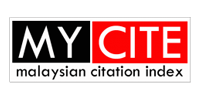Hot Air Drying of Brazilian Spinach Leaves
DOI:
https://doi.org/10.58915/aset.v3i.578Keywords:
Brazilian spinach leaves, Drying characteristic, Hot air dryingAbstract
Brazilian spinach is one of the best leafy vegetables with tons of nutrients and has a range of health benefits. Its quality also determines the acceptance of customers to buy and consume it. The common method to extend the shelf life of the spinach is through drying treatment and preserving the color and texture quality of the leaves. Therefore, this study aimed to determine the drying characteristics of Brazilian spinach and investigate the effect of drying temperature on the color and texture quality of Brazilian spinach. Brazilian spinach leaves were dried using a hot air dryer under different temperatures (30, 50, 70 and 90°C). Results showed that the drying rate increased when temperature increased. It was found that the Midili model gave the best fitting to the experimental moisture ratio for a specific drying treatment. Drying the Brazilian spinach leaves at 50°C was the best condition for preserving their color and texture properties.
References
Jiang, N., Liu, C., Li, D., Zhang, Z., Liu, C., Wang, D., ... & Zhang, M. Evaluation of freeze drying combined with microwave vacuum drying for functional okra snacks: Antioxidant properties, sensory quality, and energy consumption. LWT-Food Science and Technology, vol 82 (2017) pp. 216-226.
Castro, A. M., Mayorga, E. Y., & Moreno, F. L. Mathematical modelling of convective drying of fruits: A review. Journal of food engineering, vol 223, (2018) pp. 152-167.
Spence, C. On the psychological impact of food colour. Flavour, vol 4, issue 1 (2015) pp. 1-16.
Mazandarani, Z., Aghajani, N., Garmakhany, A. D., Ardalan, M. J., & Nouri, M. Mathematical modeling of thin layer drying of pomegranate (Punica granatum L.) arils: Various drying methods, vol 19, (2018) pp. 1527–1537.
Omolola, A. O., Kapila, P. F., & Silungwe, H. M. Mathematical modeling of drying characteristics of Jew's mallow (Corchorus olitorius) leaves. Information processing in agriculture, vol 6, issue 1 (2019) pp. 109-115.
Ashtiani, S. H. M., Salarikia, A., & Golzarian, M. R. Analyzing drying characteristics and modeling of thin layers of peppermint leaves under hot-air and infrared treatments. Information Processing in Agriculture, vol 4, issue 2 (2017) pp. 128-139.
Abdullah, S., Yusof, Y. A., Rukunudin, I. H., Abdul Karim Shah, N. N., & Abdul Razak, N. Infrared drying of Clinacanthus nutans leaves. Journal of Food Processing and Preservation, vol 46, issue 3 (2022) p. e16404.
Doymaz, İ., & Karasu, S. Effect of air temperature on drying kinetics, colour changes and total phenolic content of sage leaves (Salvia officinalis). Quality Assurance and Safety of Crops & Foods, vol 10, issue 3 (2018) pp. 269-276.
Guiné, R. P., & Barroca, M. J. (2012). Effect of drying treatments on texture and color of vegetables (pumpkin and green pepper). Food and bioproducts processing, vol 90, issue 1 (2012) pp. 58-63.
Ansari, S., Maftoon-Azad, N., Farahnaky, A., Hosseini, E., & Badii, F. Effect of moisture content on textural attributes of dried figs. International Agrophysics, vol 28, issue 4 (2014) pp. 403–412.












